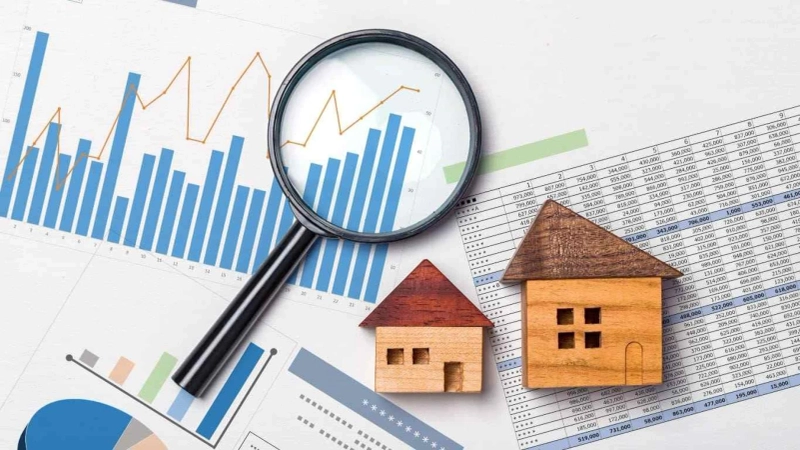Sustainable development is becoming an essential consideration in real estate, and commercial appraisals play a pivotal role in this shift. By evaluating the sustainability features of properties and their potential long-term benefits, commercial appraisals contribute to environmentally responsible decision-making. This article explores the role of commercial appraisals in promoting sustainable development and the factors that appraisers consider in this context.
Understanding Sustainable Development in Real Estate
Sustainable development in real estate focuses on creating and maintaining properties that are environmentally friendly, socially responsible, and economically viable. This approach considers the long-term impacts of buildings on the environment and society, aiming to reduce negative effects while enhancing positive outcomes.
The Importance of Sustainable Commercial Properties
Sustainable commercial properties offer numerous benefits, including:
- Environmental Benefits: Reduced energy consumption, lower carbon emissions, and less waste contribute to a healthier planet.
- Economic Benefits: Sustainable buildings often have lower operating costs, higher property values, and increased marketability.
- Social Benefits: Improved indoor air quality, natural lighting, and other sustainable features enhance occupant well-being and productivity.
The Role of Commercial Appraisals in Evaluating Sustainability
Commercial appraisals assess the value of properties by considering various factors, including sustainability features. Appraisers evaluate how these features impact the overall value and appeal of the property. Key sustainability factors considered in commercial appraisals include:
- Energy Efficiency: The use of energy-efficient systems and technologies, such as LED lighting, energy-efficient HVAC systems, and insulation, can significantly reduce energy consumption and costs.
- Renewable Energy Sources: Properties that utilize renewable energy sources, such as solar panels or wind turbines, contribute to sustainability and can increase property value.
- Water Conservation: Features like low-flow fixtures, rainwater harvesting systems, and water-efficient landscaping reduce water consumption and promote sustainability.
- Sustainable Building Materials: The use of recycled, renewable, or locally sourced materials in construction and renovation projects supports sustainable development.
- Indoor Environmental Quality: Enhancements like improved ventilation, natural lighting, and non-toxic materials contribute to healthier indoor environments.
- Green Certifications: Properties with green certifications, such as LEED (Leadership in Energy and Environmental Design) or BREEAM (Building Research Establishment Environmental Assessment Method), are often more attractive to investors and tenants.
The Impact of Sustainability on Property Values
Sustainability features can have a significant impact on property values. Properties that incorporate sustainable practices often experience:
- Higher Demand: Growing awareness of environmental issues has increased demand for sustainable properties among tenants and investors.
- Increased Property Value: Sustainable features can enhance the appeal and functionality of a property, leading to higher valuations.
- Lower Operating Costs: Energy-efficient systems and renewable energy sources reduce utility costs, making properties more cost-effective to operate.
- Enhanced Marketability: Sustainable properties are often easier to market and can attract premium rents due to their desirable features.
Challenges in Appraising Sustainable Commercial Properties
Appraising sustainable commercial properties presents unique challenges, including:
- Lack of Comparable Data: Sustainable properties are still emerging, and there may be limited comparable sales data to use in valuations.
- Complexity of Features: Evaluating the impact of various sustainable features on property value requires specialized knowledge and expertise.
- Evolving Standards: Sustainability standards and practices continue to evolve, requiring appraisers to stay informed and adapt to new developments.
The Role of Certified Commercial Appraisers in Sustainable Development
Certified commercial appraisers play a crucial role in promoting sustainable development by providing accurate and reliable valuations of sustainable properties. Their expertise ensures that sustainability features are appropriately considered and valued in the appraisal process.
Best Practices for Appraising Sustainable Commercial Properties
To effectively appraise sustainable commercial properties, appraisers should:
- Stay Informed: Keep up-to-date with the latest developments in sustainable building practices and green certifications.
- Use Specialized Tools: Utilize tools and resources designed for evaluating sustainable features, such as energy modeling software and green building databases.
- Collaborate with Experts: Work with sustainability consultants, architects, and engineers to accurately assess the impact of sustainable features on property value.
- Document Features Thoroughly: Provide detailed documentation of sustainable features and their benefits in the appraisal report.
The Future of Commercial Appraisals and Sustainable Development
The future of commercial appraisals will increasingly focus on sustainability as environmental concerns and regulations continue to grow. Appraisers will need to adapt to this shift by enhancing their knowledge of sustainable practices and incorporating these considerations into their valuations. By doing so, they can support the transition to a more sustainable real estate market.
Conclusion
Commercial appraisals play a vital role in promoting sustainable development by evaluating and valuing the sustainability features of properties. By considering factors such as energy efficiency, renewable energy sources, water conservation, and green certifications, appraisers can provide accurate valuations that reflect the long-term benefits of sustainable properties. Certified commercial appraisers are essential in this process, ensuring that sustainability features are appropriately considered and valued. As the real estate market continues to evolve towards sustainability, appraisers must stay informed and adapt to new developments to support this transition. Through their expertise and commitment to sustainable development, commercial appraisers can contribute to a more environmentally responsible and economically viable future for real estate.



